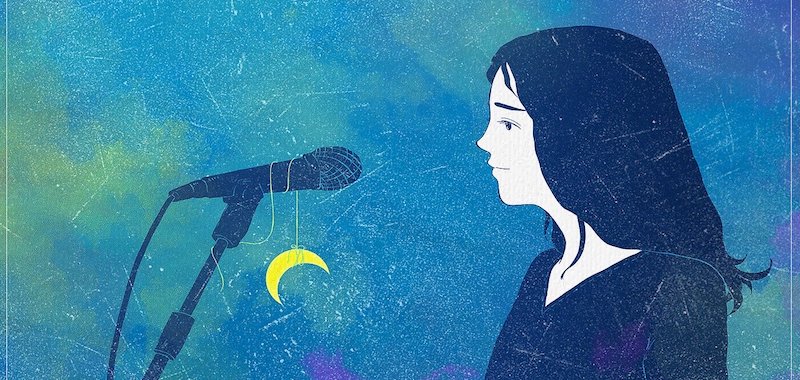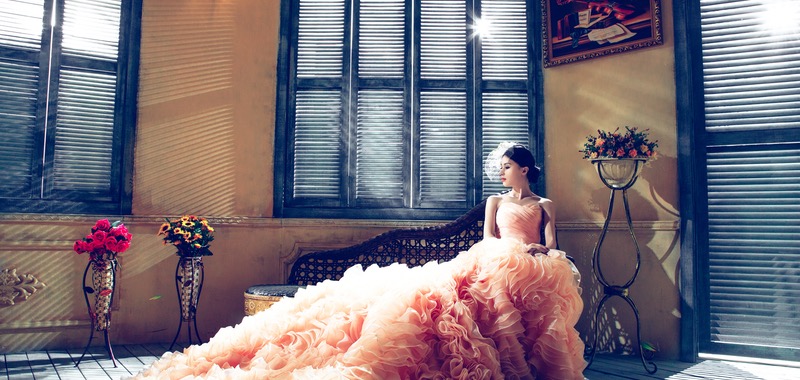Diversifying Your Recital Program: 11 Female Composers You Should Check Out
There is no debate that Schubert, Debussy, Bellini, Britten, and other classical music composers have music worth listening to over and over again. Their beautiful compositions are consistently featured in recitals year after year. However, many recital programs and repertoire books lack one important thing: female composers. Women's contributions to classical music have been overlooked for centuries, which has led to their music being published and performed much less than the works of their male counterparts. It can be genuinely hard to find music by female composers. Luckily, we've done some of the grunt work for you. Check out the following pieces by these incredible women and consider putting them on your next recital program!
English
Sheila Silver - Beauty Intolerable
Sheila Silver (b. 1946) is an American composer whose portfolio includes operas, chamber music, orchestral works, film scores, and solo instrumental works. Her opera, A Thief of Love, was featured at the New York City Opera's Showcasing American Composers concert in May 2000, and her 2010 one-act opera, A Wooden Sword, was commissioned as a result of the Sackler Prize for Music Composition in Opera. She is currently working on an operatic adaptation of Khaled Hosseini’s international best-selling novel, A Thousand Splendid Suns. Silver's song cycle, Beauty Intolerable, premiered in 2013 and is a book of songs based on texts by the poet Edna St. Vincent Millay. This cycle has a variety of great pieces for higher and lower voices which can be easily extracted to fit on a recital program.
Amy Beach - Four Songs (Op. 14)
Amy Beach (1867-1944) is broadly considered the first American female composer of large-scale art music. Her Gaelic Symphony, premiered by the Boston Symphony Orchestra in 1896, was the first symphony composed and published by an American woman. Beach is also well known for her multitude of songs set to texts by herself and other poets. Her work includes a variety of incorporated folk songs with pieces inspired by Scottish, Irish, Balkan, African American, and Native American music. Her Four Songs (Opus 14), "The Summerwind," "Le Secret," "Sweetheart, sigh no more," and "The Thrush," are a solid sample of her impressive and powerful catalog.
Libby Larsen - Songs from Letters
Libby Larsen (b. 1950) is hailed as one of the great living American composers with over 500 pieces spanning virtually every genre. She has composed over fifteen operas including adaptations of cherished books, such as A Wrinkle in Time (1991) and Mrs. Dalloway (1993). Her art songs include repertoire for all voice types with texts from a variety of sources. This set of songs, Songs from Letters, is based on a series of letters by Calamity Jane to her daughter, Janey, explaining her way of life as a working woman in the late 1800s and shedding new light on the ways we view women and mothers.
Judith Weir - Songs from the Exotic
Scottish composer Judith Weir (b. 1954) became the first female Master of the Queen's Music in 2014, an appointment that celebrated her enormous body of instrumental and vocal works. She is best known for her stage works, including the operas Miss Fortune, The Skriker, Blond Eckbert, and The Vanishing Bridegroom. Her work features simplicity and mysterious qualities, often drawing on her Scottish heritage for inspiration. The piece, "The Song of a Girl Ravished Away by the Fairies in South Uist," is based on the text of a Scottish-Gaelic folksong and is part of the cycle, Songs from the Exotic, which draws on folksong texts from Serbia, Spain, and Scotland.
French
Pauline Viardot - "Madrid"
French mezzo-soprano Pauline Viardot (1821-1910) found great success in her time as an opera singer, gaining acclaim for her incredible range and dramatic characters. Brahms, Saint-Saëns, Robert Schumann, and Fauré all wrote pieces for her to sing, inspired by her thoughtful interpretations. However, Viardot was also a talented composer and used a variety of nationalist composition techniques. A true intellectual, Viardot spoke fluent French, Spanish, German, Russian, Italian, and English, and immersed herself in the artistic fabric of nineteenth-century Europe. The piece, "Madrid," is just one example of Viardot's musical explorations of cultures, especially her Spanish heritage.
Germaine Tailleferre - "La Rue Chagrin"
Germaine Tailleferre (1892-1983) was the only female member of Les Six, a post-World War I group of French composers who rejected the grandeur of heavy German and French Romanticism. Tailleferre's portfolio spans seventy years of active composition, including chamber music, orchestral works, ballets, operas, and film scores. While most of her surviving work is instrumental, she did compose a variety of pieces for voice, including the lovely and sad piece, "La Rue Chagrin."
Lili Boulanger - Clairières dans le ciel
Sister of the famed composer and teacher Nadia Boulanger, Lili Boulanger (1893-1918) was an accomplished and talented composer in her own right, becoming the first woman to win the Prix de Rome composition prize at the age of nineteen. Boulanger suffered from a weakened immune system her entire life and died of tuberculosis at twenty-four, cutting a blossoming career tragically short. Many of her pieces still survive, however, including settings of psalms, a Pie Jesu, works for chorus and orchestra, her cantata, Faust et Hélène, and a number of lovely art songs. This song cycle, Clairières dans le ciel, provides thirteen pieces for soprano and piano that are worth checking out.
Italian
Barbara Strozzi - "Lagrime mie"
Barbara Strozzi (1619-1677) was a true trailblazer in the musical world. She was one of the first women to publish music under her own name, as well as one of the most prolific publishers, male or female, of secular Italian music in the seventeenth century. A renowned singer, poet, lute player, and single mother of four children, Strozzi was a forward-thinking and entrepreneurial musician whose work remains relevant and beloved to this day, especially since her harmonies often break from the typical consonances of seventeenth-century Italy. "Lagrime mie" is one piece from her vast eight volumes of songs published during her lifetime.
Francesca Caccini - "Non sò se quel sorriso"
Francesca Caccini (1587-1641) was an Italian composer, singer, lutenist, and teacher who served at the Medici court in Florence. Brought into the musical world by her father, composer Giulio Caccini, Francesca displayed talent from a young age and performed with her family members. She was well known for her stage works, although only one of them, La liberazione di Ruggiero dall’isola d’Alcina, survives to this day; it is the oldest surviving opera composed by a woman. "Non sò se quel sorriso" is a song for soprano, displaying the flexibility and ornamentations characteristic of Caccini's compositions.
German
Alma Mahler - "Die stille Stadt"
Alma Mahler (1879-1964) might be best known for her marriage to her first husband, renowned composer Gustav Mahler. She was an artistic muse for a variety of artists and writers, including artists Oskar Kokoschka and Gustav Klimt, composer Benjamin Britten, architect and second husband Walter Gropius, and writer and third husband Franz Werfel. However, Alma was a talented musician and composer in her own right. Gustav Mahler discouraged her composition talents, which may be the reason behind her rather small portfolio of work. Seventeen songs for voice and piano survive, including "Die stille Stadt" from her 1911 song cycle Fünf Lieder.
Clara Schumann - "Die Lorelei"
Clara Schumann (1819-1896) and her marriage to the renowned composer Robert Schumann is the subject of many books and films. Many know Clara as a concert pianist and faithful companion to Robert, caring for their young family as he wrestled with severe mental illness. Clara's compositions are less well-known, but they are truly wonderful pieces of music, mostly composed during the first half of her life. She would compose piano pieces for her own recitals, as well as chamber works and art songs, building on her talent with the encouragement of her father and husband. "Die Lorelei" is a song for voice and piano which has recently risen in popularity.
The musical world still has a long way to go in recognizing, publishing, and performing women's works, but we are lucky to have compositional trailblazers who have shown that being female does not preclude having a career as a composer. The more we elevate women's voices, the closer we will come to an equitable industry both on and off stage. Learning and sharing this amazing music is a start.
Do you have a favorite piece by a female composer who wasn't mentioned here? Message us on Facebook or Instagram and help us share the work of these talented women!








